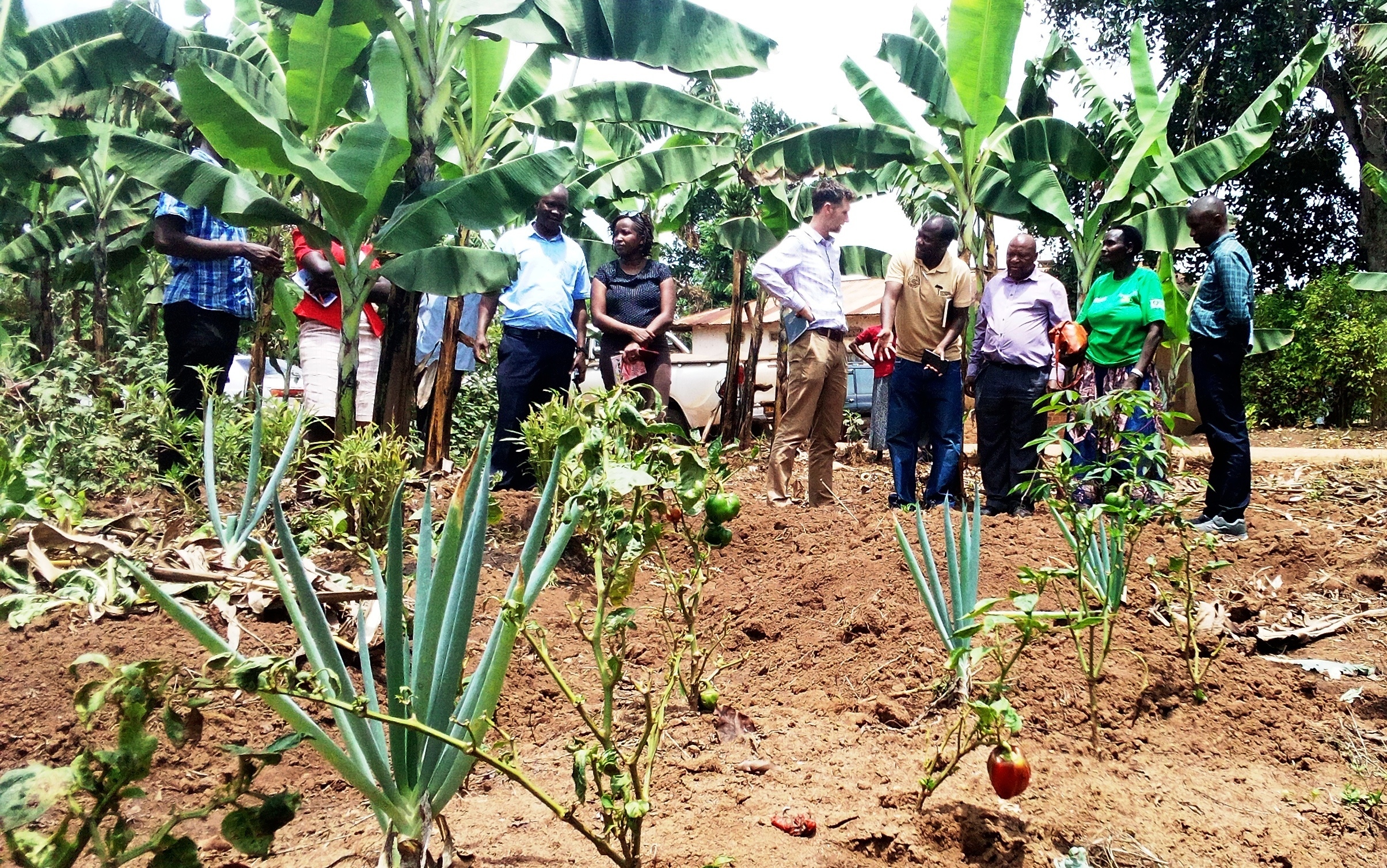MASAKA-Farmers’ cooperatives in the greater Masaka region have begun mobilising small-scale farmers to build sustainable and nutritious food systems based on agroecology.
According to agricultural scientists, agroecology is the application of sustainable agricultural practices that are environmentally friendly.
With this, cooperatives want farmers to adopt agroecological farming practices so that they can produce healthier foods which are highly demanded in regional and global markets.
According to the chairman of Kibinge Coffee Farmers’ Cooperative Society (KCFCS), Sowedi Sserwadda, modern agricultural policies encourage farmers to embrace chemical monoculture, which he said continues to destroy biodiversity and impact people’s health.
“We want to ensure that our farmers produce organic food because the corporate food system has negatively impacted on people’s health and that is why our cooperative society with about 2324 farmers has started training women and youth farmers to engage in environmentally-friendly practices,” he said.
He further emphasised usage of organic animal bi-products as fertiliser, pre-harvest techniques where only ripe cherries are picked, and post-harvest handling to avoid farm losses. He said constant use of artificial fertiliser affects soil fertility in the long run.
KCFCS Programmes manager, Rogers Sserugombwe said they are emphasisng organic farming to improve productivity of coffee trees. He said the demand of organic products on the international market is rising unlike in the past.
He continued: “We have started piloting this programme by giving animal manure such as cow dung to farmers. More than 5,034 bags of cow dung has been distributed to farmers in the clustered zones in 54 villages making up Kibinge Subcounty.”
Sserugombwe explains that they also want to start providing farmers with mowing machines to help in weeding coffee gardens instead of spraying weeds with artificial chemicals (glyphosates ingredients), adding that such chemicals affect the quality of coffee but also dangerous to human life.
According to Richard Muganzi, the sales and marketing manager of Masaka Cooperative Union, at least 104 farmers’ cooperative societies have been trained to undertake sustainable land management practices that are also climate smart. ”We want to address issues of food insecurity, biodiversity conservation, climate change, and poverty in our area,” he said.
Masaka district agricultural officer, Dennis Ssebinojjo says agro-ecological practices contribute to the production of quality foodstuffs , conservation of the environment and improve the quality of human life.
”We have empowered youths and rural women to collectively take lead in dissemination of information on agro-ecology practices because they compose a big workforce in agriculture,” he said adding that the youth and women can be change agents in society in enhancing healthy ecosystems.
Sebinojjo said his department is also encouraging farmers to preserve the natural resources and embrace beekeeping, saying the latter works in harmony with natural ecosystems and provide food security. He said if beekeeping is fully practiced, it will contribute to the development of sustainable agriculture and food systems.
An entomology officer in Masaka district, Aggrey Agaba said about 147 individual apiary farmers have organised themselves into groups and adopted smart agriculture practices, advocating for sustainable utilisation of natural resources.
He is discouraging farmers from using pesticides in agriculture, saying they harm bees directly and indirectly. ”Bees bring the pesticide-contaminated pollen and nectar to their hive and slowly poison their offspring as the pollen and nectar are fed to the bees,” he warned.
“However, the district agricultural department is also encouraging agroforestry system to increase resilience and ability to tolerate harsh weather conditions in a changing climate” he noted adding that leguminous trees with nitrogen-fixing bacteria and bananas will thus regulate the photosynthesis rhythm of food crops which gives a more long-lasting and high yielding production.”
Growing crops under shed can be of economic value to the farmers as it requires less input in terms of fertiliser and chemicals, but also essential to protect food crops from climate extremes and water loss,” he says.
https://thecooperator.news/african-govts-urged-to-invest-in-agroecology/
Buy your copy of thecooperator magazine from one of our country-wide vending points or an e-copy on emag.thecooperator.news
